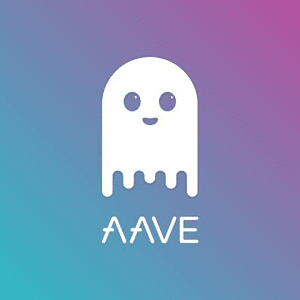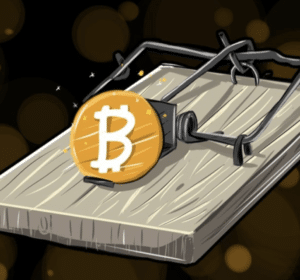Tijo and The Dollar Vigilante
Bitcoin to Gold ~ Real Estates and Investments ~ The Arcane Bear
Dear Subscribers, Costa Rica has been on my mind a lot lately. Several people I know have gone there and loved it. I have two good friends from there, and I keep hearing great reviews about it. Therefore, I decided to connect with our friend and subscriber Tijo to walk us through his experience in Costa Rica. I hope you enjoy this.
Luis : So, tell us a little bit about where are you from and how did you end up in Costa Rica.
Tijo : Well I grew up in a small mountain town in British Columbia, Canada. It was kind of an obscure place really. The town was built around a lot of the movement of marijuana at the time, so much so that we had a private police force and
everything. So I grew up in a community that was really kind of left field to begin with, which was fun. There was lots of open space to roam around and play, so somewhere like Costa Rica rings those bells similar to where I grew up. I live in a small tight knit community of people that are based around more organic and healthy living styles, etc. There is some of the more New Age stuff like yoga as well.
So the move to Costa Rica was really an extension of the things I had growing up to enjoy––the open space, the lack of government. Like I said, we had a private police force that was brought in that was totally separate from the rest of the community and the mounted police. That unique environment kind of helped lead me to where I have made it to today.
Luis : That is pretty interesting. How long have you been in Costa Rica?
Tijo : Well, I’ve been living in Central America for about 6 years. I’d lived in Guatemala for about 4 years before here, and I moved to Costa Rica 2 years ago. What originally brought me down here is I was living in Guatemala, and then there was a really fantastic painter named Alex Grey. I’m a huge fan of him. So when I saw that this artist was going to be in Costa Rica, I flew down to a festival, which I ended up managing the stage for a live band. That is one of the things that my heart is closest to, to live music. So I flew down to help manage the stage and meet this artist, and when I saw Costa Rica, at this point, I had no money. I was kind of just a street kid or whatever playing music on the street. I thought, I’ve got to invest with these guys, or in Costa Rica is what I thought to myself, but I didn’t know how quickly it would turn into something so concrete.
So I ended up down here because of art and kind of the music scene that I was interested in. That is what brought me here. What kept me here was the freedom of space and the lack of government or the lack of controls that are in place, how easy it was for me to come down here and buy property, build a house was remarkable. There’s bureaucracy that goes into particular building codes and so on in Canada, whereas here, I talked to my builders, and they are like, “Oh, here. You can pay $4000 to follow the rules or whatever, or you can just build the house and then pay a $600 fine later and it is the same thing.” So that is such an easy choice for me.
Luis : That is so funny. So tell me about that. I mean, how difficult is it for an immigrant to just go to Costa Rica and just build?
Jonathan : I guess it depends. That question is going to depend on the person who is coming into this country. Central America has a machismomindset to it, so it is hard to get away with being a nice guy here to get what you want done, I think, or at least that is what I have noticed. So for me, one of the things that has helped the most is when I got to the community that I was interested in buying, I found the people that had their nail and the hammer driven in the deepest so that I could work with not only people that I felt were my friends and companions, and people I trusted specifically––because everyone is trying to make money around these parts, so when I got here, it was easy
because I chose to find the people that were going to
help me and that I could help as well in that
process.
So it can go very well. I was able to build halfprice what most people build in a record time. I bought the property this December, and then by January, I had culverts, waterways, electricity, over 150 fruit trees, 45 different species. I had the plans laid out and stuff like this, and then 3 months later, I had a home built. But that all was really heavily reliant on the core of the people here to show up and engage in trust and communication with someone so that we could work together. And that is what really helped make it easier. Anything, if you can throw money at it, I think it can be done easily as well here, like if you have a significant amount of finance to spend. I was going medium route. I wasn’t on the
barebones build up from here. But if you have a lot of money to throw at it, anything can be done really quickly here.
I had to be adaptable because my finances have only accumulated to so much, so I was working within boundaries as well. But if you had no boundaries with your finances here, you could come and build a house, a very beautiful place totally off grid, no problem. Because money is part of that machismo environment here. You’ve got to be able to throw down that confidence, and then things get done.
Luis : Yeah. I mean, Doug Casey talks about this, when he says you have to make friends with corruption. It’s not necessarily a bad thing. It is just kind of a bureaucracy of how things work, and if you want to get anything done, you just have to do it.
Tijo: Yeah. I totally agree. If you’re going to come in here and be confident with where you’re going to go with it, it can be done very easily. Of course, Costa Rica has done some great things for making it easier for foreign investors to come in as well. The land and property that I own is owned as a corporation, which is a lot safer than owning it under a person’s name for liability aspects. And in that process, it is really quick to buy and become a shareholder of the property. And it secures a bit more rights down here as well to be the corporation instead of the person.
Luis : Now you mentioned that these are some of the benefits. The process––you have to go to a lawyer. How much does it cost to do that?
Tijo : Those fees are usually all included in the real estate agent, so my real estate agent is a good friend of mine, and what they do is the real estate agent usually has an agreement with the seller of the property that includes the legal fees as well as their commission on the property. So the real estate agent is the one that you’re going to look for that is going to want to really be able to help you out. Things like concessions, the rights to water, is really important here. Like I have my own private naciente , which is a well, and that is one of the big problems is you need water here. Of course I don’t like to rely on public municipal anything, so when buying property, water is a key point. And your real estate agent is usually the one who can really help do the background checks, see if there areliens there, and they are working in conjunction with the lawyer that they have spent time with.
Luis : Well that is pretty fantastic. So for instance, you mentioned you built a house. And you mentioned it was not super, super expensive. It was a normal price. What would that look like in Costa Rica? Because I have the mindset that Costa Rica is already expensive to live in.
Tijo : Yeah. So I paid approximately $5 a square meter for the property itself, and it’s about 1400 square feet. So that would be $20,000, $25,000 American essentially.
Luis : For an acre?
Tijo : For an acre. Yeah. And that is on the lower end. If you want something with an ocean view, it is usually $10$60 a square meter depending on how good the ocean view is and so on. And nowadays, yeah, the prices are a lot more expensive. I have friends who bought down here 20 years ago and just got smoking deals, but yeah. You can get as cheap as an acre for $20,000, $25,000.
Luis : That is actually not too bad. I mean, it is kind of equivalent pricing here in the United States.
Tijo : Yeah. I mean, the overselling in Costa Rica––there is no standing military here, which is a very unique thing. You hardly ever see lots of guns around this country at all. I mean, you can find them. They are there. Absolutely. But you don’t see a lot of guys just hanging out with guns, which you see in a lot of other places in Central America, very heavily armed. So all that extra money that getting going to military went into standardized Medicare for almost all the citizens, I think, as long as they are registered with the birth certificate or whatever, as well is that education. So there’s almost no violent crime here in comparison to countries like Honduras and Nicaragua, even Panama, which is a much closer country as well in the standard of living, etc.
So all the people who live here are very happy. The national motto pura vida is pure life. It is kind of the concept that even when things are very rough, whatever. I think if things were to go very awry here, and if the police or any of the people would just throw their stuff on the ground and just walk to the beach because there’s coconuts and there’s food on the ground everywhere. It is a very unique environment. Just south of me it contains 3.5% of the entire world’s biodiversity in a fingernail of space. So I think all of those combined factors––the lack of military, the generally well educated people––it makes for a happier culture, which makes for less crime, and in the unlikely event, they are there. They are helpful. They’re beautiful, happy, smiling people who are there every step of the way.
Luis : I love that so much actually. That sounds like a lot of fun and a very fun place to live in. I see a lot of your posts and your pictures, and it just looks stunning, and I’m really happy that you are enjoying life there. So being there only a couple of years, you’ve done a lot.
Tijo : Yeah. Thank you for reminding me. It is a pleasure to be a part of this community. When I was growing up, the community is really what is so important to me, so thanks to you all so for this. It is a lot of fun to share, to have the recognition, to recognize each other in this notion, because it is a crazy thing.
Luis : Absolutely. So you are in Costa Rica, and I’m assuming there are a lot of expats from a lot of parts of the world––Canada, the United States, and other European nations. I’m assuming that there is no shortage of any kind of amenities that people are probably accustomed to. Is that a good assumption?
Tijo : Yeah. Costa Rica’s level of advancement is over most of the other Latin American countries that I personally visited––everywhere you go here, you can drink water out of the tap, and that is like a rarity. I remember I got super sick traveling through Mexico and Guatemala a few times just because of the water, and hear straight from the get go, they have a little bit better of installation of general infrastructure. Because of that, the modernization of the United States kind of ended up here in the early 1950s or whatever.
So there are more amenities here than I have found in a lot of the other Latin American countries. But you pay for it. It is more expensive here. It definitely is. This is not cheap. I mean, living in Mexico or Guatemala was twothirds cheaper or something on a good day. It’s going to change here. I mean, already I see the local currency is starting to break down. It is back to what it was in 2008, so it is not a huge change, but it is still worth 3% or 4% less.
And you see things that are happening in the banking system here that––or at least I see them. Your average person might miss out on it. For instance, in October, the IMF came in, and I don’t know exactly what happened, but they were chatting with Costa Rica, and in less than a few days later, BCR, which is Bank of Costa Rica, had changed its limits to only $200 a day through foreign parts of money, etc., because they are trying to move more colones essentially. Even now, a lot of the times if you go to the bank, you cannot take out American money because now that they’ve had to devalue theircurrency, they sold off a bunch of American dollar assets to try to compensate for the massive debt structure that they have built the same as some of these other countries.
So you see the changes here, but it is a slow process. It is definitely more expensive, and the amenities are all there, especially if you can pay for them. Because I see a lot of people driving around $80,000 Toyota Highlanders… I’ve got a few friends I’ve made recently who have made themselves a few hundred million alone, and they have found a nice place for themselves here. They live in a decent place with amenities and with people and ideas that surround and support them there, support their lives.
Luis : I like that. What you think? Do you think it will get worse down there? What is your sense?
Tijo : Yeah. I think we are going to see a similar thing to what is happening everywhere else, this slow or maybe not slow at one point, but at the current moment the slow devaluation of the currency, where it becomes worth less and less and they have to do certain things to offset the crazy amount of debt that they are taking in. I mean, it has been so surprising to see this glass house takes so many rocks. I am actually a little bit impressed, you know? It definitely has its stability and corruption for sure, but I think once it starts to really go, it will go quickly. But again, most of the surrounding––what I think will be the US currency movement––because the dollar here is pegged to the US dollar, so if the US dollar moves, so does the Costa Rican colones , but as the Costa Rican economy starts to break down before the US dollar, I think we’re going to see it get cheaper and cheaper to live here as well, and you will start to see people sell properties and assets off at fire sale values.
Luis : Well, that is kind of exciting for me because I haven’t purchased yet, so it will be a good opportunity in the next couple of years.
Tijo: Yeah. Totally. What a wonderful place the community is here. The national saying of pura vida ––I love growing plants of all varieties. I’ve got a bunch of oregano and lemongrass and arugula and spinach just less than a foot away for me right now with a bunch of ginger and some other medicinal plants and a different type of oregano and another plant that is good for menstrual cycles for women, and a bunch of pineapples and agaves––and this is all within just a couple meters of me right now. And that to me is what I am investing in was that I have always loved nature, and to be this close to it was like a dream, you know?
Luis : Yeah. It is so easy to grow anything there. That is pretty cool. It’s no wonder that people are flocking in that direction. So what do you think we should tell the subscribers that we haven’t talked about?
Tijo : Okay. So I wanted to touch on the building price as well, because we went over property per square meter. Generally for housing prices, it is around $80 a square foot or around $300 a square meter. That’s at the cheaper end. You can obviously spend way over that depending on how custom one would like to go. It can be done cheaper also. I’d go for half that. That is all based around your ability to come and find people and really become a part of the community. I don’t know if that can be done with just money. You need to be involved as part of the heart.
Luis : Wow. So how much did you end up paying per square meter? Or square foot or whatever? Jonathan : Square foot, around $37.
Luis : $37? Whoa.
Tijo : Yeah. But again, that’s all based off that brotherly love of brothers taking care of each other, or sisters taking care of me as a man.
Luis : Yeah. I understand. So, the house is about $54,000? Gosh, that is an amazing deal.
Tijo : Yes, I feel that way. I mean, I can’t thank my friends enough other than being here and helping them when their tire goes flat, you know? That’s what this place was built on.
Luis : I agree, and I like that, helping one another. So tell us a little bit about this corporation deal. How long does it last? Do they give people 99 years, or how long?
Tijo : I don’t know. The corporation is owned indefinitely. It is not on a lease of any kind. You have to pay fees for a corporation just like you would for anywhere in the world. So you pay a yearly fee, and that is based off of two things. The property tax here is actually very low, and depending on what you get your house appraised that, I think they tax you at different levels, that you pay a yearly rate for your corporation, which is $400––super cheap. It is really easy to do, and you can pay years in advance with your lawyer also. You can pay with escrow as well, so if you don’t want to tinker with these kinds of things, that is not a problem. There is no renewal on it. It is just a corporation, and you have to pay, just like any corporation.
Luis : Gosh, that is an exciting and outstanding deal.
Tijo : Yeah. Oh! So the other thing is if you have your property appraised at or invest $200,000 in your business or other forms of investment here, they basically give you residency as well. That is one of the plus sides. You can technically gain residency and more if you have a baby here, even if the baby was conceived somewhere else, if the baby is born in Costa Rica, the child gets citizenship, and both father and mother get residency as well. So there are some fun little loopholes here.
Luis : Yeah. That is always nice to learn. That is always nice to learn. So what about transportation? What is it like over there? Because I know that in Central and South American places, you have very, very tiny cars, motor cars, bikes and all that.
Tijo : No. Here, I constantly see, like I was saying, or $80,000 Toyota products, and when you go into the city, you see a range of vehicles. You don’t see the smaller tuktuks like you’d see in Thailand or places like Mexico. These are all modern cars. They have uniform taxis. Transportation in the city is really easy. It is a little confusing, but Google Maps will get you anywhere you need to go. I live out in a much more rural area, and a 4 x 4 is a necessity where I live. I live 900 feet up the side of the mountain and it is all dirt. I’ve got friends where you have to drive over a river to see them. So a 4 x 4 in a rural area is still necessary, but the main roads, like the Costanera, which goes along the coastline, it is an absolutely beautiful highway.
I think one of the interesting things about Costa Rica if they are not smart enough to be really corrupt yet, so they have only been able to become so corrupt because they’re not even devious enough to be ridiculously corrupt. So the corruption here is you constantly have the road being repaved and repainted because the construction company has a contract with them, where they have to have this much money spent on construction every year. So you see like the infrastructure does well because of that because they are constantly rebuilding stuff, but it is kind of annoying. It’s 6 months of a super dangerous road with no lines. It is black, and it is raining. Then 6 months later, you have a brandnew road with brandnew reflectors instead of just paint. They do keep the infrastructure up, which is good.
So the fact that they haven’t intellectually become that devious yet means the corruption really only goes so far. I mean, I don’t know what
you’re going to add, and maybe some of this you will excerpt, thatgetting caught with something like marijuana down here is almost nothing. One day I was riding my motorbike, and the cop pulled me over. I had totally forgot I had a pipe in my bag. He looked at the pipe. The pipe is still full of ganja, and he’s like, “Have you got any more?” I say, “No.” He says, “Okay. Have a good day.” No license check. He didn’t check my papers. Nothing. You know? That kind of stuff is just crazy. It is legal here as far as I can tell. You can get caught with up to an ounce. As long as you don’t have it separated––this is from what other people told me who have been here in the community for a long time––they don’t really care. They are notlooking to screw you over necessarily.
That pure life, that pura vida idea––out in the rural areas, everyone’s pretty happy because there is food and water everywhere. I think everyone knows and is kind of wanting it to fail, you know? I think a lot of people want to maybe get back to how we used to have it, because back in the day, like 2000 years ago, all you needed was a little bit of food and some good love and some people around, some music, and plants, and it was an everyday good time. So I think a lot of people recognize how they want to, they can go right back to that kind of movement, if people didn’t get in their way. If everything were to fail tomorrow, we could do it here pretty easily, even if you had nothing.
Luis : Yeah? Yeah. That sounds exciting. the ability of living like that and doing more, having the civilization to be able to achieve anything, I think that is pretty cool. So you can live in both worlds at the same time, and to me that is the best of both worlds. So gosh, we have covered a lot, and I think we have had a lot of great information. Is there anything that we are missing that you think we should share with our subscribers?
Tijo : Yeah. Costa Rica is definitely not for everyone. It is a really harsh environment in some way. The jungle is constantly trying to consume itself, and when you live there, you kind of feel part of that process. Everyone who lives here kind of fights to survive, because even the plants are all edgy and sharp. Everything is protecting itself, so the people who really do end up living down here and enjoying the lifestyle are those people who have maybe
endured a bit more and can appreciate that in their life. To go surfing or something, it is mostly a lot of fun, but the ocean is going to beat you up, you know? You’re sitting outside a beautiful paradise, that you might get bit by mosquitoes. I think a lot of people come down here. They think paradise is this easy experience, and it is not. Paradise here takes a little bit of a fight.
Luis : What are one or two things or more that you have found most challenging?
Tijo : You know, the most challenging thing for me––which I am just getting over right now––was I came out here as a single male, so I ended up on the side of the mountain in this very small community spending 23 hours alone. I sit, I studied music, I take care of the plants, I have a dog. Building a community and enriching my life with the support of other people was at first the hardest thing to overcome because I came here alone. I had no family here. All my family lives back in Canada. So that ability to try to embrace everyone––the people that are important in my life––as my family, people I can rely on. If I need to go to the hospital, there are friends I can call on that make me feel like family. And that was the hardest part, I guess. I’m getting over it after being here a little longer. I’ve overcome it. It was such a beautiful experience. I have my stepfamily.
Luis : Yeah. That is actually one of the challenges when you move anywhere, not just Costa Rica, so when you go out of your comfort zone, out of the family circle, that is very common. So thank you for sharing that. I like to usually point out things that people struggle with because anywhere, it can be nice, it can be fine, but there is always something. It is not just the rosy stuff. There are challenges. So people go there knowing that there is going to be something that may be a little bit difficult.
Tijo: Yeah. Totally. It is good to feel it there. So thank you for that question.
Luis : Absolutely. Jonathan, thank you so much for this. This has been very informative for me, and I am sure that it has been for all the readers out there.
Tijo : Thank you, Luis. It is a pleasure. I wish all the Dollar Vigilante members the best, and I look forward to our future together.
Luis : Thank you so much. Luis with Dollar Vigilante, and we will catch you soon.
Also, Be sure to check out, The Dollar Vigilante and their key investment advisor Edmond Bugos~
Thanks for taking your time to read through our article with The Arcane Bear~






























